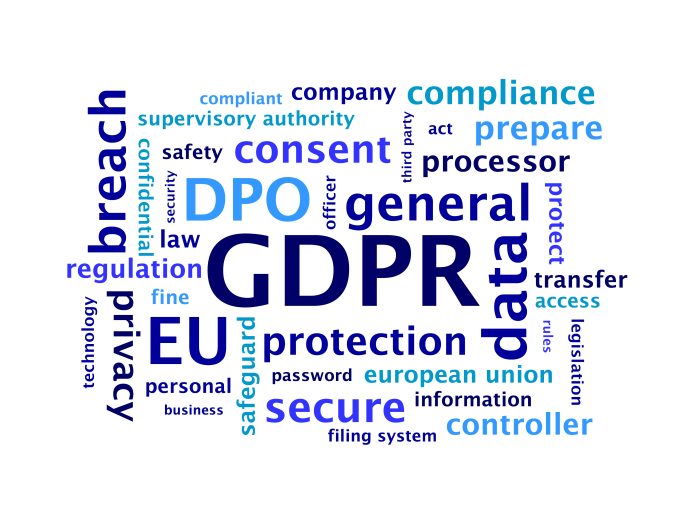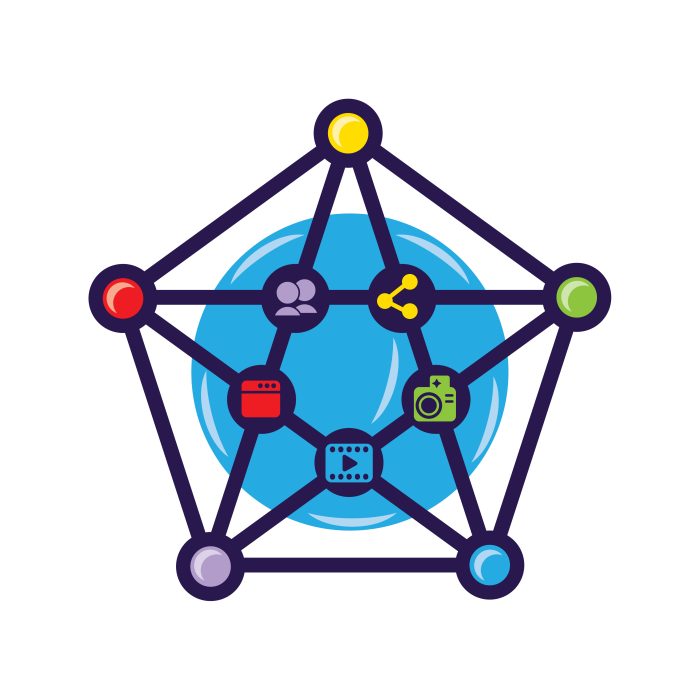Privacy concerns in the online world aren’t new. We already know that big tech collects our personal data through “free” services, that data brokers profit off that data, that AI is scraping our social media for added profiling, and that governments utilize various surveillance technologies. But with the rapidly changing global landscape of threats to freedom of expression and personal liberties, there is a new level of concern for the need for privacy. Here, we point to some recent developments that may have an impact on privacy protections and personal data. Below you will also find a list of safe and private alternative services.

Protect Your Privacy
Protecting your personal data online is about protecting your privacy, which we believe is a basic human right. The ability to communicate and express ourselves freely are fundamental rights not only in democratic societies but around the world. Many individuals have real concerns today over how to stay safe and private online, including human rights activists, journalists, political opponents and lawyers working to protect citizens’ rights. Being able to access information privately and to have safe channels for communication is more important than ever.
It can be a complicated task to protect your data from big tech – often their “free” services mean that you give up your personal data. It takes time and effort to navigate the landscape of privacy policies, opting out of cookie tracking, finding safe browsers and other alternatives for keeping your data private. Data collected by big tech services is nearly impossible to control or erase, potentially exposing us to unforeseen risks. How can you really know how safe your data is?
Below, we provide suggestions for privacy focused alternatives.
Rapid Changes
The shifts we see happening with big tech adjusting their policies and agendas pose real concerns over what other changes will happen, either from government pressure or to avoid harassment. Changes in policies can make once-protected information accessible to authorities with different agendas. There are fears over issues such as unauthorized access to personal data held by government agencies and politicized antitrust enforcement. Artificial intelligence and predictive analytics is advancing, and personal data is not only a commodity but also a tool for enabling mass surveillance.
Safeguards to data privacy in the U.S. are being weakened, and includes the dismantling of the Cyber Safety Review Board, which handles cybersecurity events and breaches. The Federal Trade Commission, the agency handling antitrust issues, has seen a reduction in their workforce, as has the Department of Commerce, which handles personal data transfers. Both have had workers dismissed and brought back in a confusing flip-flop, underlining the uncertainty of the state of affairs.

The EU-U.S. data privacy relationship
Tensions between Silicon Valley giants and the EU are already high, and we have seen clashes over the General Data Protection Regulations (GDPR), the Digital Markets Act (DMA) and the Digital Services Act (DSA). The U.S. views much of the regulation in Europe as a challenge to its tech leadership and a threat to innovation. In spite of this push-back and the recent challenges, the European Commission is determined to continue to hold Big Tech to tough standards – which is comforting to anyone within the EU/EEA area, where personal data has greater protections.
Even so, the future of the EU-U.S. data privacy relationship and the lawful transfer of data between EU and the U.S. is uncertain. The recent removal of members from the Privacy and Civil Liberties Oversight Board (PCLOB) in the U.S. leaves EU citizens without an effective remedy for unlawful surveillance. The PCLOB is critical in ensuring that U.S. intelligence activities complies with EU privacy standards, and oversees the procedural safeguards to protect EU citizens’ rights. With no independent oversight of U.S. surveillance practices, there are real concerns about the integrity of privacy protections. This is leading many people to opt for more privacy-focused services in Europe and other regions.
What you can do
Whether you are concerned about protecting your data and having safe and private channels of communication, or just want to move away from companies whose values don’t align with your own, here is what you can do.

Step 1. Email
Move your email away from giant ecosystems and out of the hands of big tech and the reach of surveillance governments. There are several privacy focused email service options in Europe. Runbox is uniquely positioned because we are based in Norway, a data privacy pioneer even in European context.
Runbox provides secure, private and sustainable email services, and we collect a minimal amount of data necessary to provide you with our service. All your data is safely stored on our servers based in Oslo, safe and secure within the borders of Norway, under Norwegian jurisdiction, along with the protections of the GDPR.
We do NOT give up your data just because someone demands it. We have proper channels through the Norwegian court of law to handle any requests for data. Our values are deeply rooted in Norwegian traditions of democracy and ethics, and we have clearly stated company values that we take extremely seriously.
Step 2. VPN
Use a VPN service which hides your IP address and encrypts your communication, protecting you from Internet providers who might otherwise track your communication. Your ISP (Internet Service Provider) can likely tell that you’re using a VPN, but it cannot track your online activity.
Mullvad (Sweden), NordVPN (Lithuania), ExpressVPN (British Virgin Islands/US), and OctoVPN (US) are privacy focused options. For a free basic plan, check out TunnelBear (Canada). Note that some account-related data may be processed or stored outside the EU, depending on the provider.
Step 3. Private Browser
Use a private browser, which can help reduce the amount of data collected when you browse the internet. We like Vivaldi (Norway), Opera (Norway), Brave (US), Mullvad (Sweden), and Mozilla Firefox (US). Make sure you check the default search engine, as some might default to Google Chrome.
In addition, you can turn on incognito mode/private browsing, which will add another layer of privacy (depending on which browser you use – it’s not a guarantee that data won’t be logged).

Step 4. Private Search Engine
Use a private search engine to avoid your searches being tracked. Good options include Startpage (Netherlands), Ecosia (Germany), Qwant (France), Swisscows (Switzerland), and Brave (US). DuckDuckGo (US) is also considered private and safe. Deleting history is a good habit regardless of which search engine you use.
Most have ad tracker blocking and cookie blocking. You should also add your own – see next step.
Step 5. Ad & Tracking Blocker
Use an ad and tracking blocker. You can install PrivacyBadger (US), uBlock (US), Ghostery (Germany), AdBlock (US) and others as an extension in your browser of choice. These will help block any website that tracks you across other sites, and block ads (which sometimes have trackers in them too). You can use several at the same time! Note that some websites might not work as expected with blockers on.
Step 6. Private Chat App
Use a private chat app. Keep your communications with loved ones and others secure. Signal (US) is at the top of the list for most secure communication apps. Session (Switzerland) is also a contender. WhatsApp (Meta-US) was subject to spyware by Graphite in 2024, and Telegram (BVI) has been a hotbed for criminal activity, which could expose you to scams.

Step 7. Social Media
Use social media alternatives such as Mastodon (Germany) or BlueSky (US). Other alternatives are photo-sharing site Pixelfed (Canada) and video-sharing site PeerTube (France). Be aware that everything you post, follow and like is public knowledge. Many are leaving mainstream social media because of privacy concerns.
Step 8. File Storage
If you use cloud file storage for documents and photos, consider alternatives such as Jottacloud (Norway), Nextcloud (Germany), Cozy Cloud (France), Tresorit (Germany) and Filen (Germany). These are under the protections of the GDPR. Sync.com (Canada) is another secure option. Apple’s iCloud and Google Drive are also considered secure, especially if you have two or multi-factor authentication. Note that there is a recent report on spyware compromising iCloud data.
Step 9. Documents
Explore alternative document applications for enhanced privacy. By doing so, you can prevent your files from being stored in Big Tech clouds and avoid their collection of metadata. LibreOffice (Germany) is free, open source and privacy focused, as is OnlyOffice Docs (Latvia). CryptPad (France) is also decentralized and privacy focused.
For more European alternatives to big tech, check out European Alternatives.
We are here to help.
Runbox stands with all champions of human rights, democracy and freedom of expression. We support anyone who shares these values, and will continue to do our part in ensuring safe and private email communications. All personal data handled by Runbox is protected against unauthorized access by strict Norwegian privacy laws, along with the full protections of the GDPR, the DMA and the DSA (see links above).
Our team is always ready to help if you have any questions or need assistance. If you are an individual operating a human rights organization in support of freedom and democracy, please reach out to discuss free email services at support@nullrunbox.com.
Stay safe and stay private.

